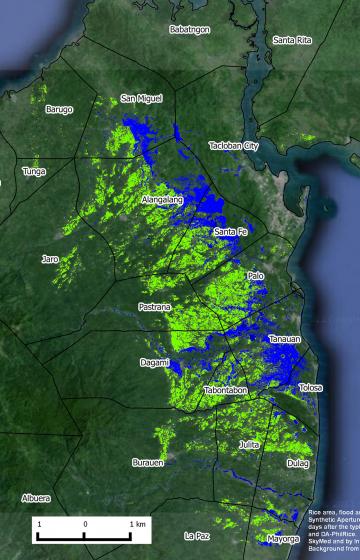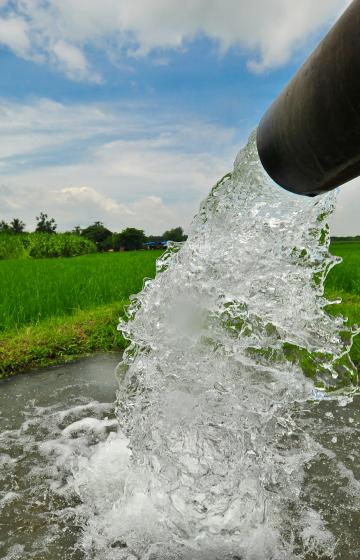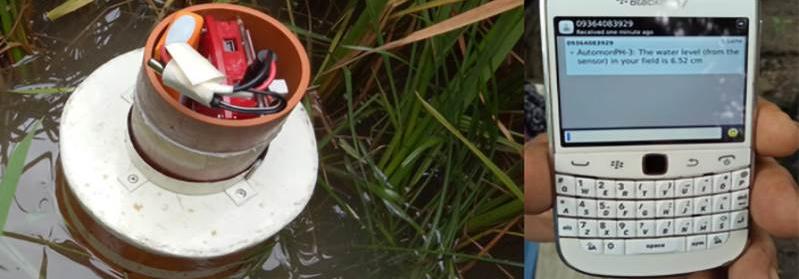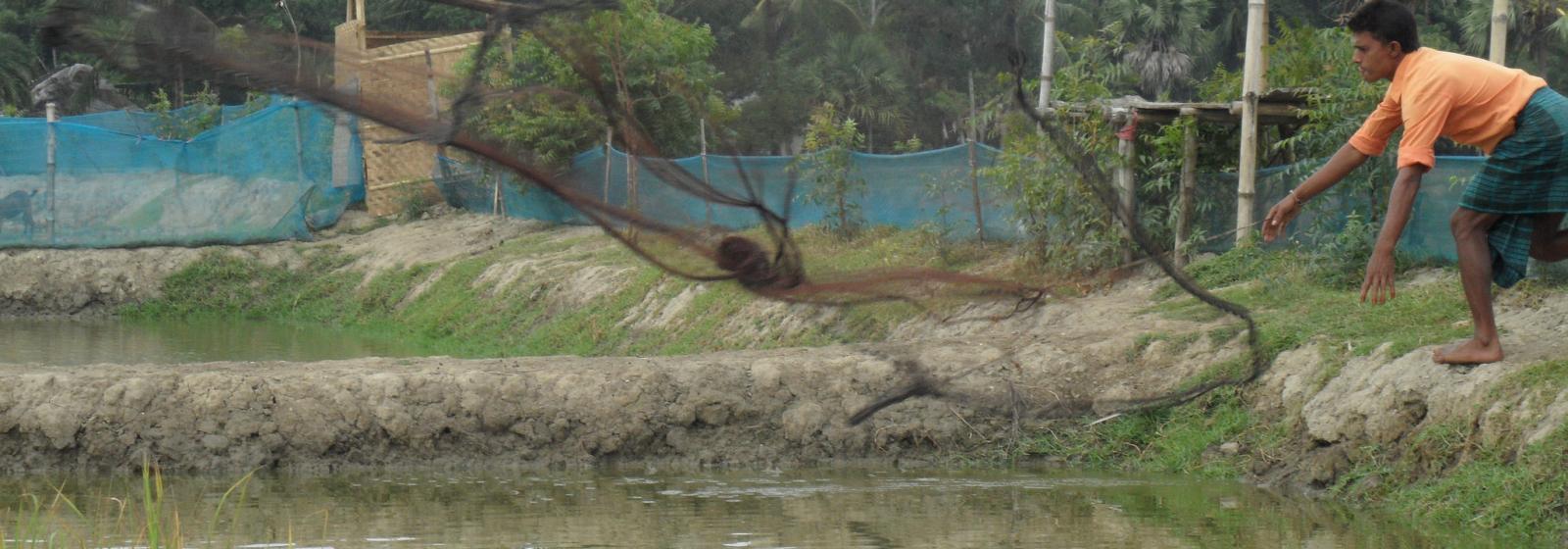IRRI continuously explores, develops, and promotes strategies and technologies to help farmers and communities improve their water management and productivity. The institute also works closely with government agencies and private institutions to shape policies and develop programs for effective and sustainable water management solutions.
Sustainable water management
IRRI’s sustainable water management approach explores existing technologies and recommends the best option or combinations of technologies that are appropriate to the context and needs of the rice field, end-users, adoption environment, potential impact, and trade-off.
Water management at field scale
There are many technologies that can reduce irrigation water input and increase water productivity. These include:
- Field design and land gradient
- Land leveling
- Alternate establishment method - changing crop establishment to dry seeding or nonpuddled transplanting
- Irrigation scheduling using safe alternate wetting and drying (safe AWD) principles
- Micro-irrigation
- Drought-tolerant rice varieties
- Improved crop management - includes altering planting calendar to reduce evaporation losses, mulch, harnessing residual moisture

Eyes in the sky: targeting big gains at landscape scale
To map, identify and characterize major hotspots of irrigation water use, IRRI uses existing data and local expert knowledge, combined with detailed satellite imagery, drone technology and modelling. The process will identify and estimate water availability, governance, risk, and extent of gains and key factors affecting sustainable water use. Micro-mapping also enables stakeholders to understand the opportunity costs in adopting and outscaling different technologies for sustainable water use.

Water governance at regional scale
To achieve the Sustainable Development Goals, IRRI is involved in explorative analysis of water at different scales, including understanding on:
- Water footprints labeling
- Externalization of water footprints
- Real water versus virtual water consumption
- Structure and behavior of water governance bodies

Decision-enabling digital tools
In irrigated areas, there are many technologies that can save water without affecting the yield. They have many benefits such as reducing methane emissions in rice fields. For example, AWD can reduce water use by up to 30% and reduce the environmental footprint by up to 50%. This technology was developed almost a decade ago and has been tested and validated in different countries. However, its adoption has been relatively slow because of the following challenges faced by farmers:
- A major portion of the water resource is managed by an irrigation/farmers’ association instead of by individual farmers, and it is quite tedious for the water association to monitor the water level in each and every field.
- The technology at this stage is field-specific and cannot be expanded to the turnout catchment area. It also lacks the interface for converting data into ready-to-use information and insights.
- Challenges in understanding and accurately measuring water depth.
Increased labor requirements and costs due to frequent irrigation.
The new technique requires more management oversight and puts higher demands on farmers’ time.
- These challenges require an integrated decision tool that requires efficient water management, continuous monitoring, reporting and verification of water management practices, and a multi-stakeholder interface.
IRRI and its partners works on the digitization and automation of sustainable water management.
- The model involves using “Automated Monitoring” (AutoMon) tools to catalyze the adoption of water-saving technologies by improving access to information, effective coordination among stakeholders, and enforcing transparency in water governance.
The digital tool for water management will:
- allow effective and real-time monitoring of water status at multiple levels (from plot to river basin)
- enable computation of water demand at multi-scale
- provide improved access to information that will guide decision-making of different stakeholders
- reduce transaction time and cost of effective coordination among stakeholders
- enhance transparency in water governance
- create a real-time analytics platform for monitoring, evaluation, and learning
- establish an evidence repository to trigger policy change

Water and environmental sustainability
The expansion and intensification of agriculture in Asia has happened with the significant quantity of chemical (pesticides and fertilizer) inputs to agricultural systems. While it certainly helps in food security, it has many trade-offs, including water pollution and eutrophication of reservoirs.
To help address this, IRRI is working on understanding the water quality issues- type (pesticide, heavy metal), degree, and temporal variability in the kind and degree of contamination and understanding the potential impact of improved agricultural practices to water quality.

Coastal environments
IRRI focuses on sustainable resource management of coastal lands through integrated land and water management for rice farmers. Apart from helping them sustainably improve their livelihoods, IRRI looks at the interaction among the different systems of rice, upland crops, fisheries, and aquaculture production while also suggesting socioeconomic and environmental impact interventions. With partners from the national agriculture research and extension systems (NARES) and international research centres, IRRI helped assess the positive impacts of engineering structures, such as the polders in Bangladesh (coastal Ganges Delta).
IRRI’s work focuses on:
- development of integrated land-use pattern based on hydrological unit
- drainage design for high-yielding rice varieties cultivation in the wet season
- decision support on water governance to improve on-farm water environment for year-round cropping
- involvement of women and youth in agriculture through mechanization
- gender and nutrition
In Vietnam, IRRI developed decision-support modeling tools and water and land resource management strategies. This is to accommodate the diversification of rice-based and brackish water aquaculture-based farming systems in Mekong Delta.
Learn with Us
IRRI Water Science provides training courses on different aspects of water governance and management. All these courses can be accessed through IRRI Education.

